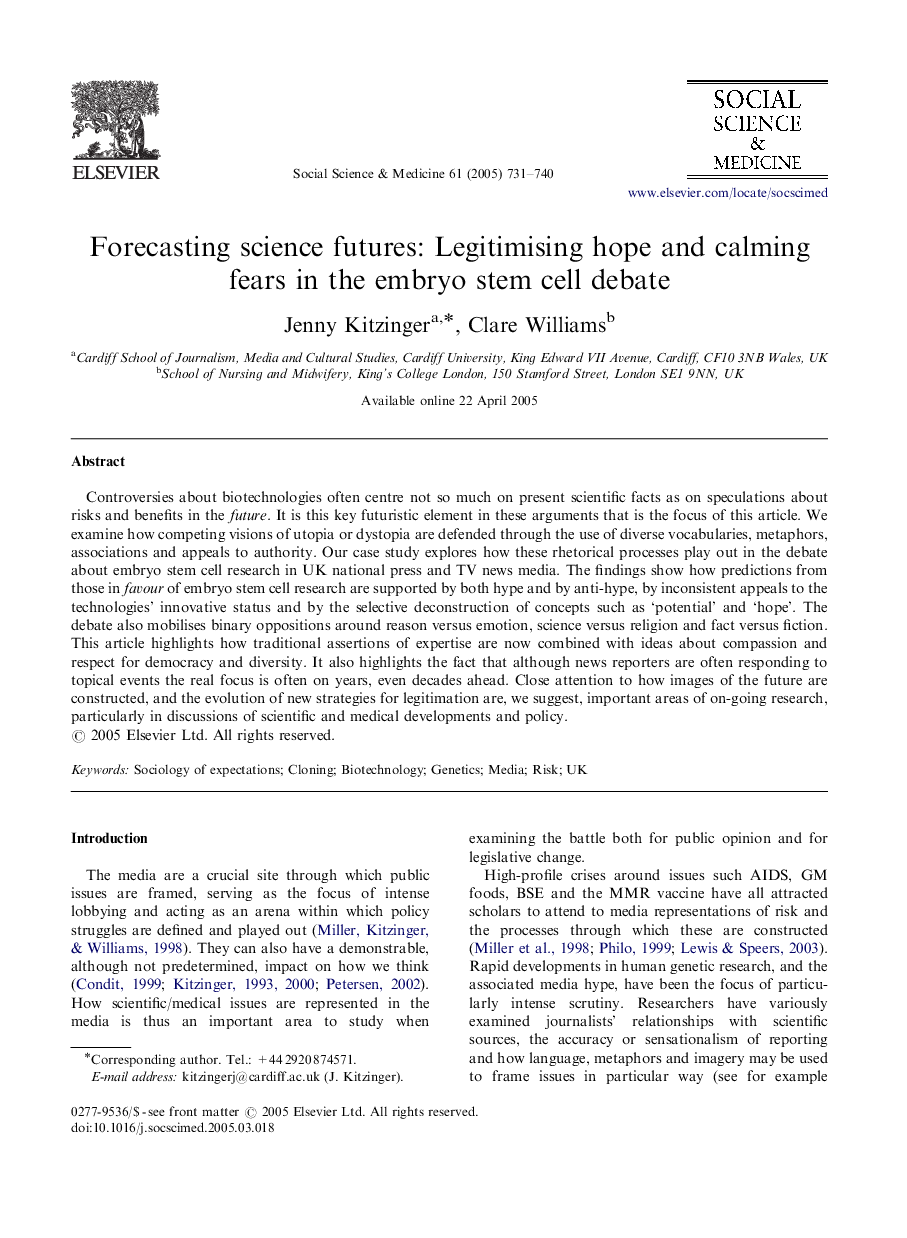| Article ID | Journal | Published Year | Pages | File Type |
|---|---|---|---|---|
| 10473061 | Social Science & Medicine | 2005 | 10 Pages |
Abstract
Controversies about biotechnologies often centre not so much on present scientific facts as on speculations about risks and benefits in the future. It is this key futuristic element in these arguments that is the focus of this article. We examine how competing visions of utopia or dystopia are defended through the use of diverse vocabularies, metaphors, associations and appeals to authority. Our case study explores how these rhetorical processes play out in the debate about embryo stem cell research in UK national press and TV news media. The findings show how predictions from those in favour of embryo stem cell research are supported by both hype and by anti-hype, by inconsistent appeals to the technologies' innovative status and by the selective deconstruction of concepts such as 'potential' and 'hope'. The debate also mobilises binary oppositions around reason versus emotion, science versus religion and fact versus fiction. This article highlights how traditional assertions of expertise are now combined with ideas about compassion and respect for democracy and diversity. It also highlights the fact that although news reporters are often responding to topical events the real focus is often on years, even decades ahead. Close attention to how images of the future are constructed, and the evolution of new strategies for legitimation are, we suggest, important areas of on-going research, particularly in discussions of scientific and medical developments and policy.
Related Topics
Health Sciences
Medicine and Dentistry
Public Health and Health Policy
Authors
Jenny Kitzinger, Clare Williams,
